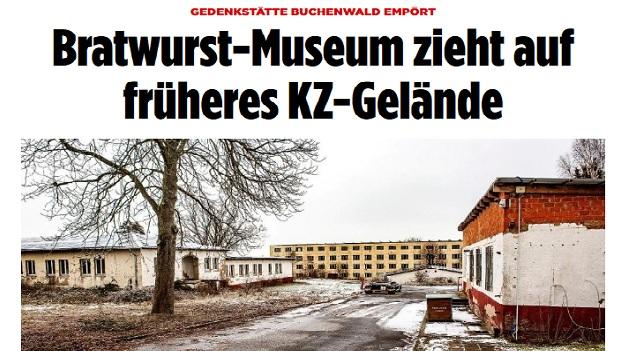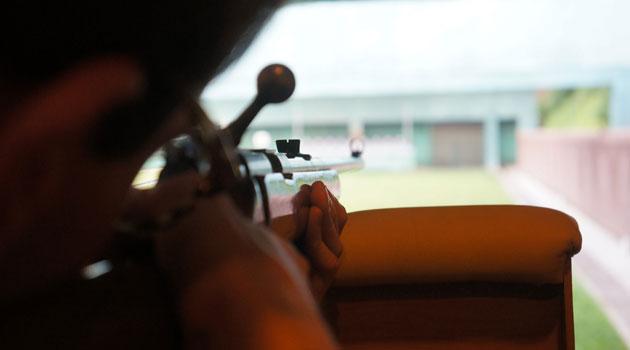German investors into sausage museum want to move it to a former concentration camp site

A wave of outrage has been building in Germany after the much-loved Museum of Sausages in the state of Thuringia publicized its plans on 30 January to relocate to a bigger facility near the town of Mühlhausen, where from 1944-1945 the Buchenwald concentration camp had a branch of its operations. The Nazis imprisoned almost 700 female Jewish prisoners from Hungary and Poland there, most of whom died in the Bergen-Belsen concentration camp after Buchenwald was closed.
Thuringian sausages are famous in Germany and the Thüringer Rostbratwurst enjoys the same popularity there as beer from Plzeň does in the Czech Republic. The museum, located in the village of Holzhausen, opened in 2006 as the first of its kind, and it has been visited recently by as many as 50 000 people every year.
The museum does not have room to cater to such a volume of visitors, so somebody came up with the idea of relocating it “from the heart of Thuringia to the heart of Germany”, as the museum’s press release states. According to news server Bild.de, of the 25 investors interested in the project, Jan Kratochwil (age 36) was chosen and is offering his own plot of land near Mülhausen as the new location for the museum.
The land includes buildings that were used by the former branch of Buchenwald concentration camp, previously referred to by the code name of “Martha II”, and has been owned by Kratochwil since 2008. He wants to build a 16-hectare entertainment center there featuring not just the new Museum of Sausages, but a hotel, a theater, and other elements by 2020.
Kratochwil is also considering installing a Ferris wheel at the site. Christian Fröhlich, head of marketing for the investors, gave a statement about the history of the location to Bild.de in which he claimed to have commissioned research in the local archives.
“There was no branch of Buchenwald concentration camp here. The prisoners spent the night here at the most, but they did not work here,” Fröhlich alleged.
As for Kratochwil, he even told Bild.de that “testimonies exist saying those people were glad to be here”. Rikola-Gunnar Lüttgenau, press spokesperson for the memorial at the Buchenwald concentration camp, rejects the investors’ allegations and considers them to be greatly disturbing.
While a different use for the location of the former branch of Buchenwald cannot be rejected out of hand, Lüttgenau said it could only be justified if the history of the place will be clearly communicated to those using it. Frank Baranowski, an historian who has long focused on the history of the Buchenwald camp, also commented on the controversy to the regional newspaper Thüringer Allgemeine.
The branch of the Buchenwald camp was called “Martha II”, referencing the “M” of Mühlhausen, its location. Another camp called “Martha I” was used for male prisoners.
“Martha II” held as many as 700 female Jewish prisoners between the ages of 15 and 33, primarily from Hungary and Poland. They were forced to work for Gerätebau GmbH, a daughter company of Ruhlaer Uhrenfabrik Thiel.
“That camp was a mini-Buchenwald concentration camp with the same horrible living conditions. The only difference was that they needed the prisoners for labor so they didn’t just let them die,” the historian said of “Martha II”.
Thomas Mäuer, the CEO of the Museum of Sausages, reacted with surprise to the information about the former branch of Buchenwald having been located at the site. He said he had visited Mühlhausen during negotiations more than once and knew the land had formerly been military territory, but he did not learn the location had such a history until last week’s press conference publicizing the relocation of the Museum.
The CEO said he could imagine making room for the history of the location to be honored at the facility. “We cannot ignore history,” he said.
The president of the Jewish community of Thuringia, Professor Reinhard Schramm, was said to be arranging to meet with the local authorities to discuss relocating the facility to a different part of town, according to the Thüringer Allgemeine. “In this case, apparently, nobody comprehends what it means to have been imprisoned in a concentration camp,” Schramm told the paper.
